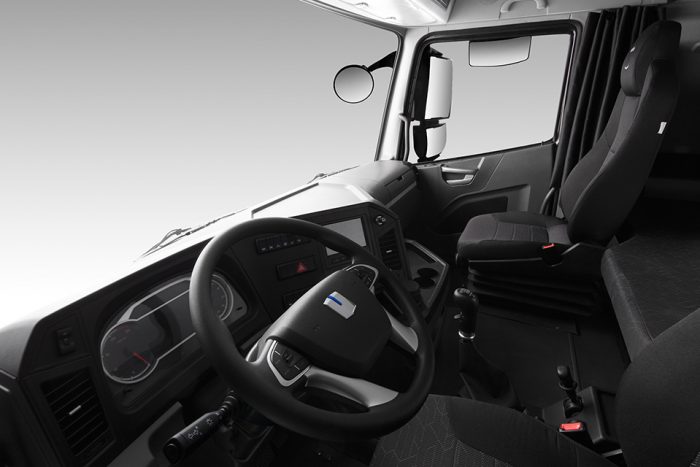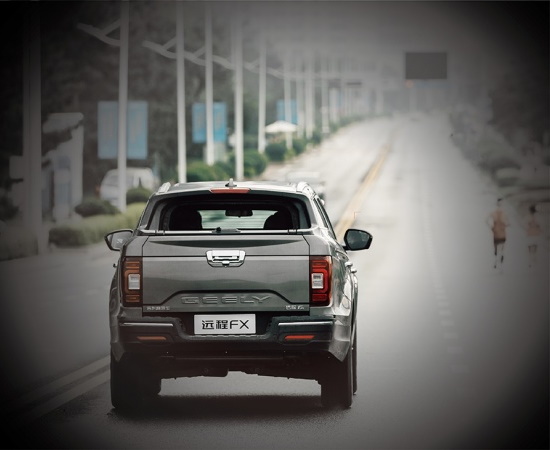Did you know Geely Group made alternative fuel trucks and buses?
It is not difficult to admit that Geely Group’s business ventures are ‘broad’ to say the least: we have gone from a simple practice of producing consumer vehicles to a vast group structure that includes satellite production, smartphone development, drones and even flying cars. Of course, these seemingly random decisions are all part of a grand plan for the future of mobility
Another area many might be unfamiliar with is Geely’s commercial vehicles unit – that’s right, we are also in the business of researching, developing and producing trucks and buses. Known as Farizon Auto (a combination of “far” and “horizon”), this arm of Geely has been in operation since 2016. At the time of the brand’s unveiling, it unveiled its first two products: a light commercial vehicle and a city bus, both using a pure electric powertrain.

A pure electric bus operating in Hangzhou, China
Today, these vehicles can be seen in operation around China. Farizon’s electric buses, for example, can be seen ferrying people around some of the major cities. Since its inception, Farizon has been clear of its objective: it would explore and develop the future of commercial vehicles covering new energy forms, driver-vehicle relationships and the connected future of logistics.
Getting straight to the source

The world’s first M100 methanol truck
Farizon’s first vehicles explored the use of pure electric energy to power buses and light trucks. One of the more popular products, an electric refrigerated truck, offers a great alternative to diesel trucks, which currently dominate the commercial vehicle segment with 75% market share. These trucks can save 20,000 CNY every year on fuel when compared to diesel counterparts, and can also be charged from 0 to 80 percent in 2 hours, making the most of the truck’s 200km range.
Farizon does not only limit itself to electricity but also explores the use of synthetic fuels. On April 26, 2019, the brand launched the world’s first M100 methanol-fueled heavy truck. Not only are methanol engines cleaner than its more commonplace diesel counterparts, emitting 15 to 20 percent less carbon as a byproduct of combustion, methanol can also be sourced from a wider range of places: it can be extracted from coal, natural gas, or even by recycling carbon dioxide.

However, these methanol trucks do not slack when it comes to performance. Methanol engines emit power comparable to diesel but win out where consumption is concerned. Users of mid-size methanol vehicles can save as much as 45,000 CNY (6000 EUR) per year when compared to diesel.
Vehicles built to last
Farizon has long been exploring the relationship between vehicle and operator, and this is especially true in commercial vehicles, where a huge amount of time is spent behind the wheel and in-vehicle operation. This means they need to be equal parts practical and heavy-duty, as they are used for hundreds of thousands of kilometres and countless orders. Some will even double up as a living/ resting space for long-distance journeys, so the additional element of comfort needs to be looked into as well.
This is achieved by considering the daily journey of a driver: what tasks do drivers do most frequently? How can we make their lives easier? This could range from something simple like a slight adjustment of the air outlet to improve air circulation in the cabin, to developing a super comfortable, durable seat that can reduce driver fatigue over long-distance journeys.

Yes, they also made THAT pickup
As partial and full automation moves closer to reality, Farizon expects them to play a big part in the field of logistics, with autonomous trucks speeding along intelligent connected highways. This will further change how these vehicles are used as the cockpit is transformed into a combined living/ working/ driving/ resting space with the driver taking the ‘back seat’ for long periods.
It is impossible to accurately predict the future of commercial vehicles, but as with consumer cars, it will certainly be a future in which new and alternative energies, as well as autonomous and connected technologies, play a key role. Geely, with Farizon, believe it is a future they are prepared for.
To keep up to date with everything happening in Geely Group, sign up to our newsletter.


